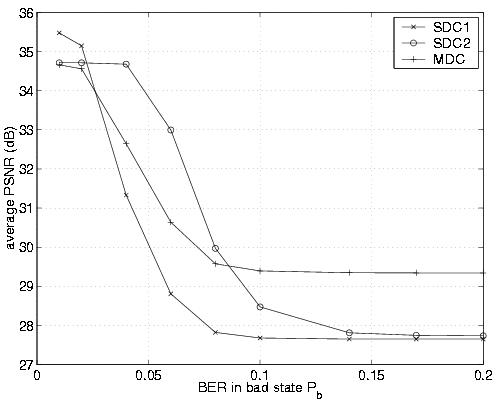
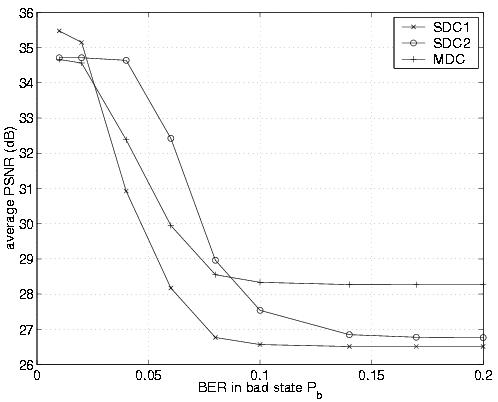
Source: Larry (QCIF) sequence with 1689 frames at 15 fps
Source Coding: MDC and SDC for comparison.
Channel Coding/Modulation: BCH code/BPSK
Channels:
Two-state Markov channels:
BER in good state is fixed at 0.001.
Channel transition possible at the start of each video frame.
Rayleigh channels: two channels at carrier frequencies of 900MHz
and 1800MHz, respectively.
We use 2 SDC schemes for comparison with MDC.
SDC1: We code at the same source rate as two descriptions
in MDC and use the same FEC for atoms so that total rate is the same.
SDC2: We code at such source rate that PSNR is same as
two description MDC with no channel error, and choose FEC to match
the overall rate with MDC.
Comparisons in the literature are typically between MDC and SDC1 over lossy channels, showing that MDC outperforms SDC1 at large loss rates and vice versa at small loss rates due to redundancy in MDC. We believe a more interesting comparison would be between MDC and SDC2, both having same error free performance. SDC2 allocates all available redundancy to FEC while MDC uses weaker FEC and allocates remaining redundancy to source coding. Comparison between MDC and SDC2 would test the efficiency of a MDC design.
Two-state Markov channels
 |
 |
Rayleigh fading channels
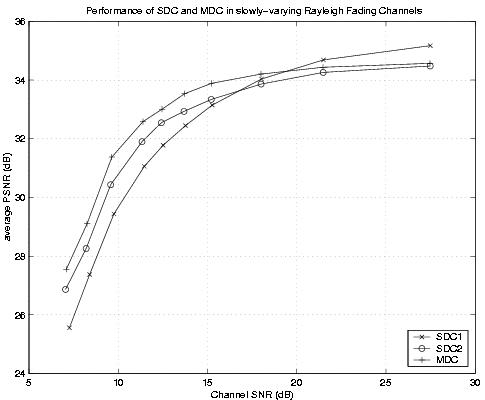 |
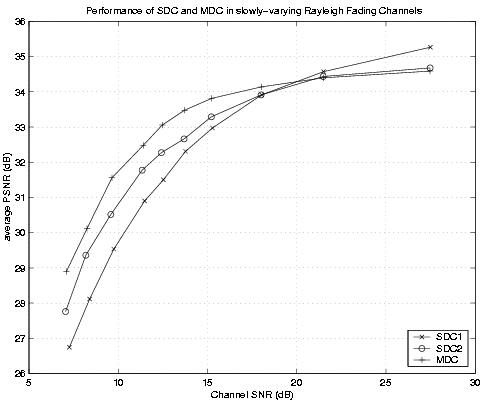 |
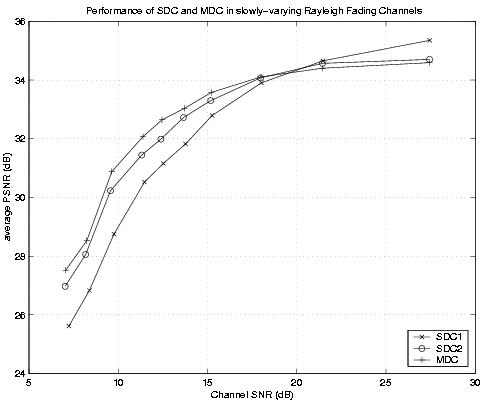 |
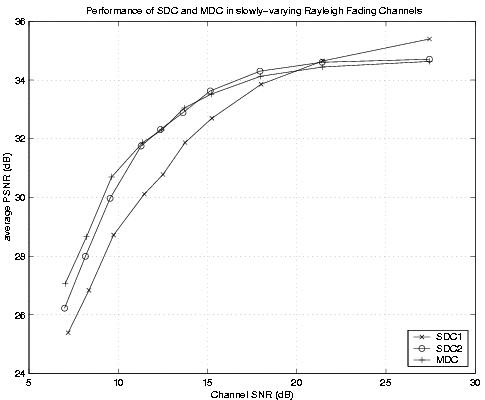 |